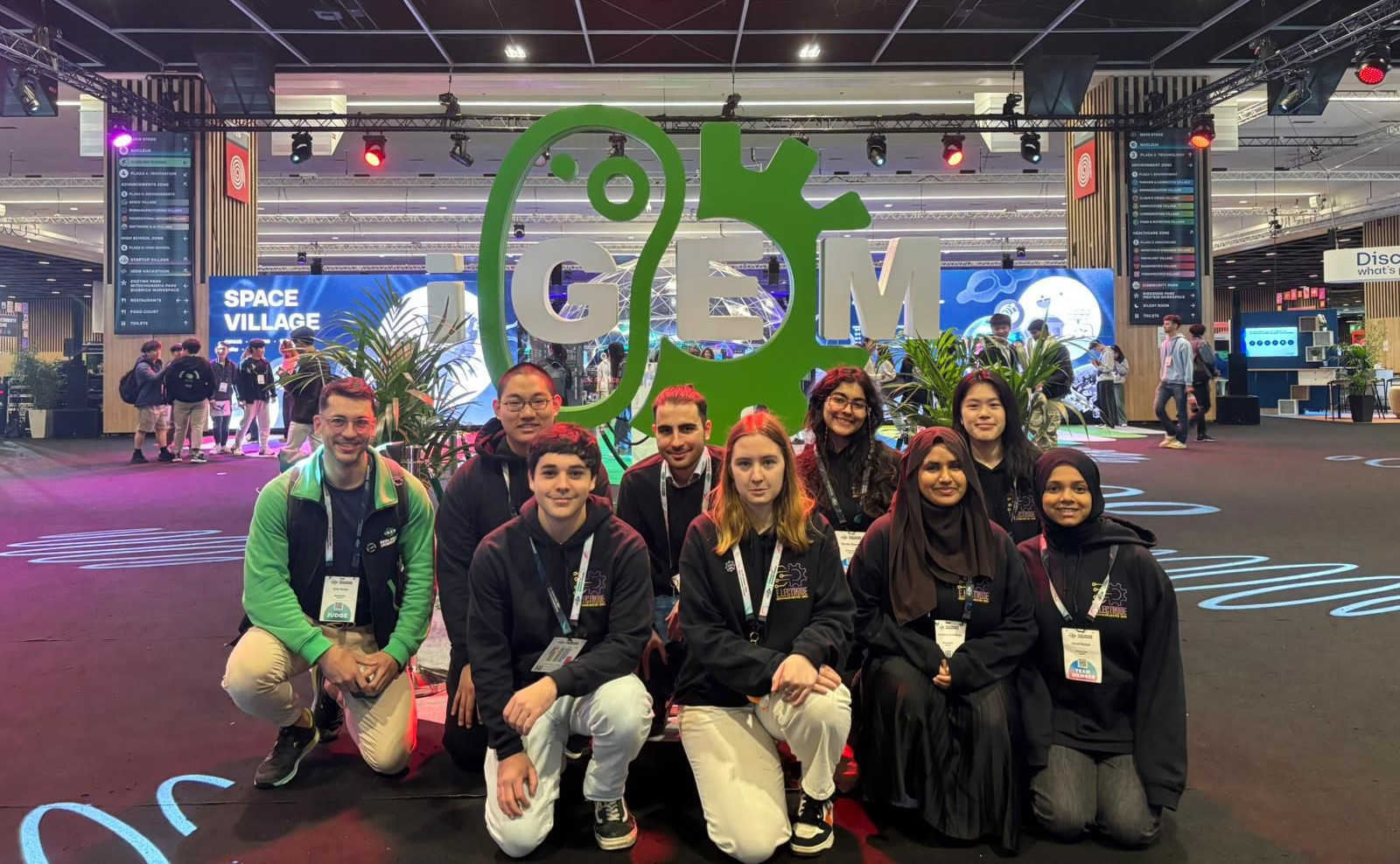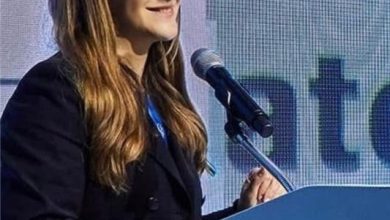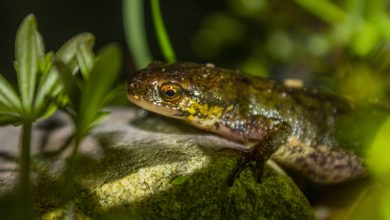Student team’s biological wires win gold at international science competition

A team of University of Manchester undergraduate students have returned from an international competition in Paris with a gold medal for their innovative proof-of-concept work on biological wires to enhance the control of artificial limbs.
E.lectrode, which aims to improve the way prosthetics for people who have suffered traumatic limb loss work, wowed the judges at the International Genetically Engineered Machine (iGEM) 2024 Grand Jamboree.
The non-profit iGEM Foundation hosts an international student competition each year to promote education and collaboration among new generations of synthetic biologists.
Human-machine interfaces are becoming more advanced, with new technologies harnessing the body’s electric signals to control devices.
Artificial limbs, known as myoelectric prosthetics, are directed by electrical signals generated by muscle contractions in the residual limb, which can be translated to motion.
However, heavy batteries and motors in myoelectric prosthetics can cause excessive sweating and make the electrodes slip from their contact points, resulting in discomfort and imprecise limb movement.
To solve the problem, the team proposed using synthetic biology to create tiny specially designed wires that work with skin cells.
They engineered a type of bacteria – Escherichia coli – to express tiny, hair-like structures known as pili (e-pili) found on electricity conducting bacteria called Geobacter sulfurreducens.
By combining the Escherichia coli with a protein-binding peptide, the team created nanowires that specifically target and bind to proteins at the skin’s surface, potentially enhancing precision of an artificial limb.
The Manchester iGEM team were Damian Ungureanu, Devika Shenoy, Francisco Correia, Janet Xu, Jia Run Dong, Usrat Nubah, Yuliia Anisimova, and Zainab Atique-Ur-Rehman.
Eriko Takano, Professor of Synthetic Biology, said: “I’m delighted our team won gold at the iGEM 2024 Grand Jamboree for an innovation which could make a difference for people who need artificial limbs.
She added: “I have supervised the Manchester iGEM teams together with Professor Rainer Breitling since 2013.
“Our teams, based in the Manchester Institute of Biotechnology (MIB), have been very successful and have achieved a gold medal all but one of the years that we participated – which is quite an achievement.
“In 2016, the team also scooped the special award for ‘Best Computational Model’ and were shortlisted for the ‘Best Education and Public Engagement’ award.”
This year’s Manchester iGEM team worked in the MIB labs throughout the summer, with financial and logistical support from the MIB, School of Biological Sciences, School of Social Sciences/Department of Social Anthropology, School of Arts Languages and Cultures, and the Future Biomanufacturing Research Hub.
The team also worked with the Alliance Manchester Business School (AMBS) to comprehensively explore the social and economic implications of their ideas using a Responsible Research and Innovation (RRI) approach.
The competition provides an interdisciplinary learning opportunity for students outside biology, by encouraging participants to think beyond their lab work.
Damian Ungureanu, second year Biochemistry student, said: “Working with people from different cultural and academic backgrounds has allowed me to substantially develop my communication skills. Even though this was a synthetic biology project, the human practices aspect was just as important as the science. Winning the gold medal felt like the culmination of one year of hard work.”
Devika Shenoy, second year Biomedical Sciences student, said: “I am grateful to have gotten the opportunity to work with so many like-minded individuals and under the guidance of skilled advisors and PIs. iGEM has truly broadened my horizons and understanding of how science and synthetic biology can be used to solve world issues.”




